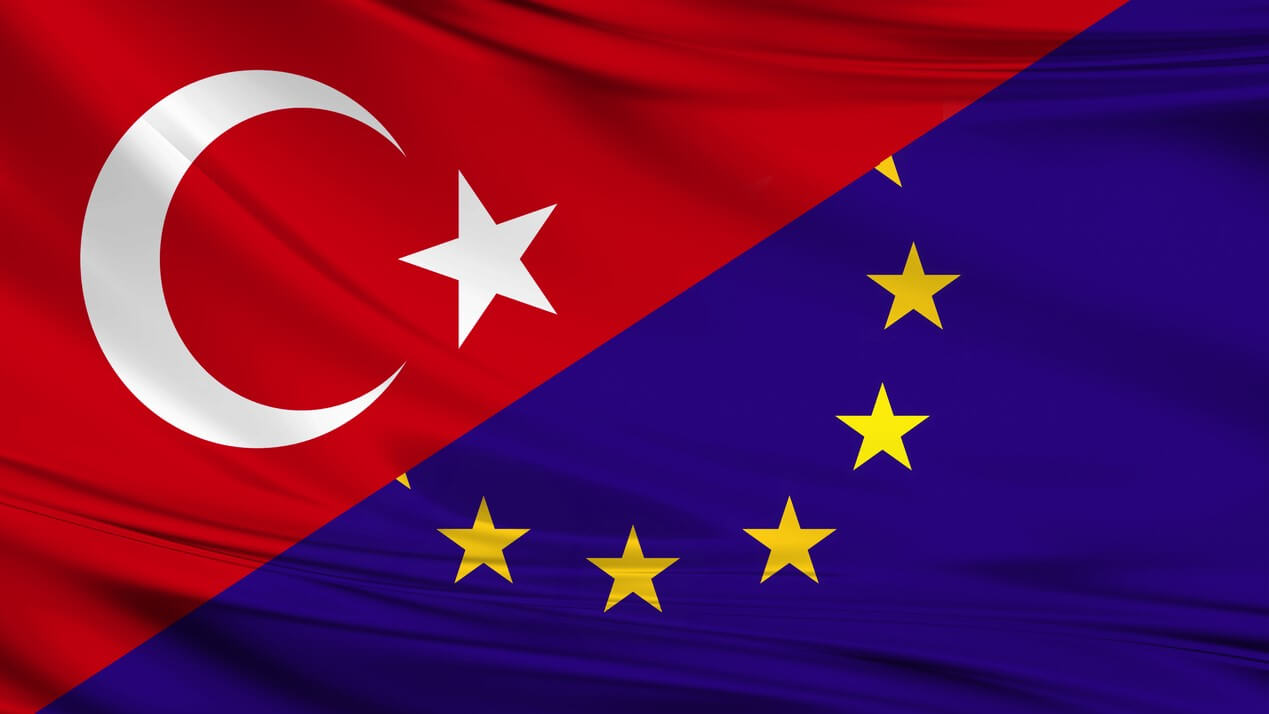Group chief strategy officer at Nest Investments
View Author Profile
Opinions
Turkey And The EU: How Can Businesses Mitigate Political Risk?
President Erdogan's recent power-grab at the ballot box has strained relations.

Even since the days before the Byzantine and Ottoman Empires, the area that we now know as modern day Turkey was a global commercial hub situated at the geographic centre-point of the Silk Road.
Today, Turkey has inherited this strategic location between the Asian and European continents and remains one of the world’s most imposing economic powerhouses. However, its geography has also placed it at the centre of the recent migrant crisis, and has left it at the awkward fringes of the EU – neither quite within Europe nor entirely in the Middle East.
Recent disagreements between several European leaders and President Erdogan have also seriously strained diplomatic relations between the EU and Turkey.
The Turkish leadership has in recent years sought to implement several changes to the country’s constitution and judiciary – moves that have not been welcomed by European leaders, and even threaten the progress of Turkey’s decades long EU accession bid. Indeed, Fitch Ratings, has recently cited political and security reasons as central to its credit rating downgrade (BB+ to BBB-) of Turkey earlier this year.
Such geopolitical complications are of great concern to political strategists and diplomats alike. However, they are of equal concern to economists and businesses, particularly those that hold a commercial stake in Turkey itself.
Since the creation of the EU-Turkey Customs Union in 1995 the EU has become Turkey’s largest export market (accounting for around 45.5% export volume) - and in turn, Turkey has become the EU’s 4th largest export market (behind only the USA, China and Switzerland). If diplomatic relations continue to deteriorate, business will certainly lose out.
With the EU and Turkish economies so closely intertwined, political instability therefore carries huge risk for commerce and trade. It is plausible that tighter border controls might be implemented by both sides, which in turn would constrain the free flow of goods and services between these two global economic giants. Businesses must look for ways to mitigate the strategic and political risks that will affect their operations.
There are a few ways to approach this in practice:
1. Constantly be informed
Businesses must consult with specialists and analysts regularly. It is important to monitor the news and have systems in place analysing the real business implications of unfolding events. Eurasia Group, Control Risks and several other consultancies regularly produce highly specific, cutting-edge reports on both the political and economic situation in Turkey as well as other major global economies.
These are a useful tool when planning your firms mid to long term strategy. It is important to fully understand both the effects of microeconomics (affecting specific projects or industries) and macroeconomics (affecting the entire economy). Accurate data allow your in-house risk management team to develop an evidence-based set of risk scenarios and establish how they might affect your organisation’s objectives in future.
2. Remain composed – do not create panic
A rapidly deteriorating political situation (such as last year’s attempted coup in Turkey) should not provoke the rushed implementation of a crisis plan. Depending on the nature of your business some political change can, in fact, present an opportunity to gain more market share – it is worth taking the time to explore such possibilities rather than engaging in a knee-jerk reaction and regretting it later.
3. Look for the opportunities and adapt
Every cloud has a silver lining - one needs look no further for a clearer example than the predicted doom and gloom that was universally anticipated prior to President Trump’s inauguration. Since Trump’s election the financial, pharmaceutical and construction industries have boosted significantly due to the new president’s deregulation plans and return to more fiscal policy based economics. With adequate foresight, it is possible to adapt your business to new realities to benefit from a political upheaval.
4. Minimize fixed investments
Political risk is always relative to the amount of capital at risk in each market. It is possible to mitigate risk by limiting costs – e.g. leasing facilities instead of buying them or diversifying your suppliers so that your business is less affected by a sudden political change. Organisations should look at the costs and benefits of diversifying their strategic business components across the region.
5. Acquire appropriate insurance cover
Insurance is a powerful way to mitigate political risk - but is generally only available to larger businesses that have the financial capacity to cover the large premium costs. Since this is an expensive solution, it is best used in combination with other more proactive political risk management strategies such as those cited above.
Whilst no single measure can entirely protect your firm from all manner of political risk, a combination of the above measures can mitigate risk and might keep your business viable until political tensions stabilise again. As relations between Turkey and the EU continue to sour - and there appears little evidence to suggest a return to normality soon – all businesses with a stake in Turkish affairs ought to consider how to proactively protect their interests.
Mufid Sukkars is group chief strategy officer at Nest Investments.
Most read in Opinions
Trending articles on Opinions
Top articles on Minutehack
Thanks for signing up to Minutehack alerts.
Brilliant editorials heading your way soon.
Okay, Thanks!




